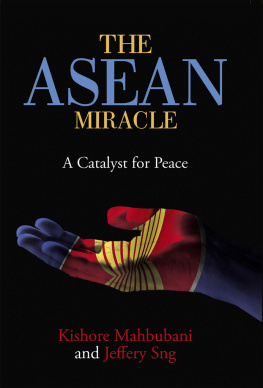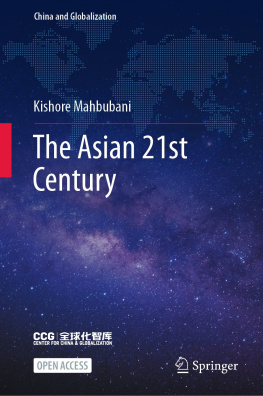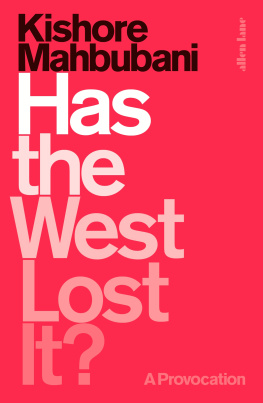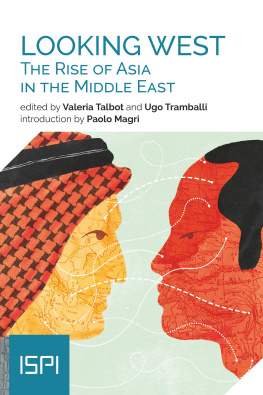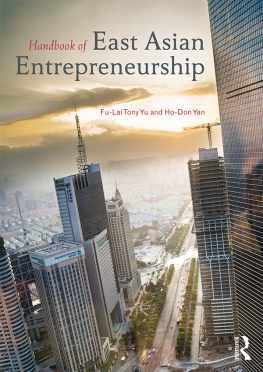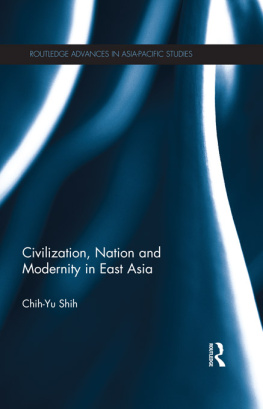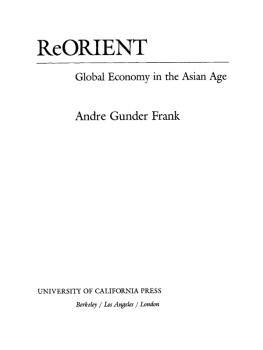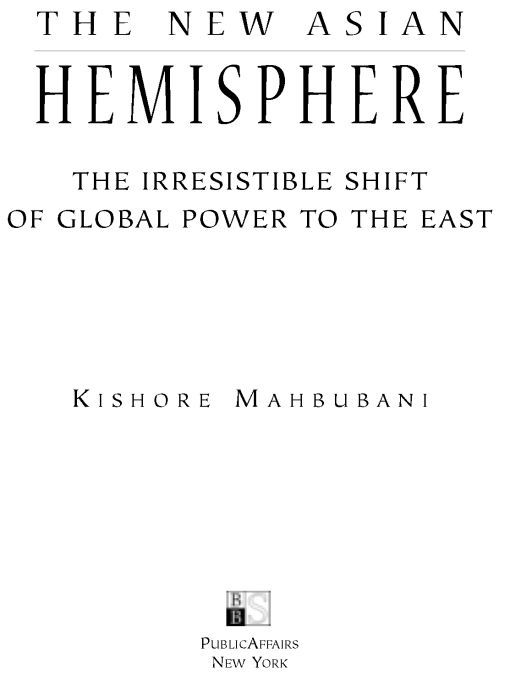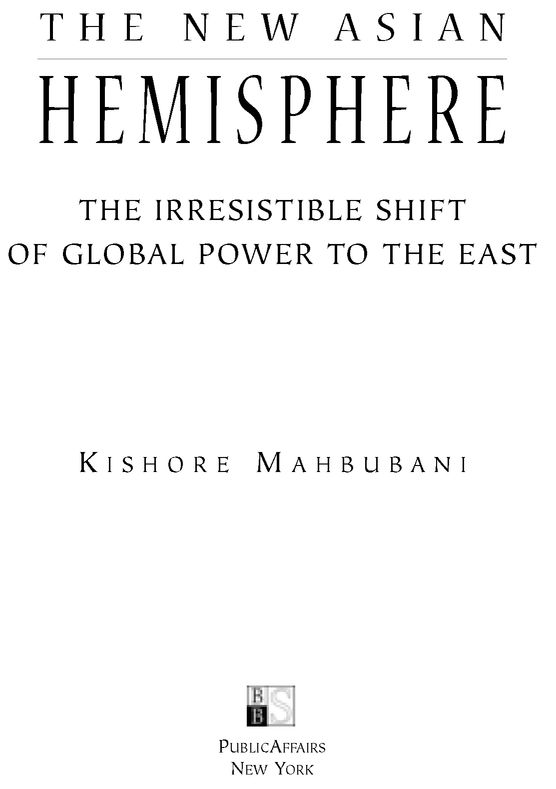Table of Contents
PRAISE FOR THE NEW ASIAN HEMISPHERE
Mahbubani provides a compelling case for a Western strategy of power sharing with Asia.
Foreign Affairs
There are lessons to be learned from The New Asian Hemisphere.... Aspiring presidential nominees and congressmen should take note.
Wall Street Journal
Kishore Mahbubani is a historian of ideas whose starting point is the present and whose horizon is a visible, startling future. This remarkable book is a fact-based projection of Asias rising trajectory. The West has been synonymous with modernity for perhaps the last three centuries. Asia is the New Modern. Vision and clarity make this book a sparkling history of the Age of Asia.
M. J. AKBAR, editor-in-chief, Asian Age, and author of The Shade of Swords
The Western, particularly the American, response to the rise of Asia has been petulant, degenerating into protectionism and panic. Japan-bashing of the 1980s was succeeded by India-bashing over outsourcing in the 1990s and now we have China-bashing in the 2000s. Mahbubani, one of the most perceptive and influential Asian intellectuals today, shows the folly of these reactions and the wisdom of applauding and working with the reality of Asias remarkable success. His splendid book must be read by every Western policymaker; it is a tour de force.
JAGDISH BHAGWATI, University Professor, Economics and Law, Columbia University and author of In Defense of Globalization (Oxford)
Kishore Mahbubani understands better than most that the relationship between East and West, established after 1945, is no longer sustainable. This book cogently and even thrillingly explains why global power politics is at a crucial moment of change, where the East and most especially the West must decide if power can be shared more equally or will be disputed more destructively.
SHEKHAR KAPUR, director of the Academy Award-winning film Elizabeth
Once again, Kishore Mahbubani proves himself a global thought-leader. In The New Asian Hemisphere, he combines a prodigious knowledge of history, a flair for lucid, often witty analysis and advocacy, and the pragmatism of an experienced diplomat. The result is a set of prescriptions that leaders and citizens of the world in both hemispheres would do well to heed.
STROBE TALBOTT, president of the Brookings Institution and author of The Great Experiment
Kishore Mahbubani, experienced diplomat, deeply immersed in the West and in Asia, is arguably the most articulate Asian voice bluntly telling the West how informed Asians see it. The tide is shifting and while Mahbubanis message will not be easy to take, Western leaders will ignore it at their peril.
EZRA F. VOGEL, research professor, Harvard University
Kishore Mahbubani has a global mind with a unique Singapore perspective and this comes out clearly in this forcefully argued book. He grew up in a Hindu family, among Muslim and Chinese friends and was shaped by British colonial education, the key ingredients of a proto-Singaporean. By studying Western philosophy and through working as a diplomat for a pragmatic city- state that has survived both hot and cold wars, he also caught the one-world spirit identified with the United Nations ideal. Thus has emerged the worldly Singaporean determined to dissect how a resurgent China, India and Islam might force the old West to change. He also challenges a new Asia to respond if and when this change in the West happens.
WANG GUNGWU, chairman, East Asian Institute
His view is that he, and Asia, sees the world differently than the U.S. does. In many respects he is right.
JOSEPH E. STIGLITZ, Nobel Laureate and author of Globalization and its Discontents
TO KISHORE, SHELAGH, AND JHAMAT
ACKNOWLEDGMENTS
It was an act of sheer folly to agree to write a book while trying at the same time to build a new school of public policy. The only way to get it done was to burn months of weekends with writing. My family paid the price. This is one reason why I am dedicating this book to my three children.
But there is another, more important reason. I believe that they can live in a better world than my generation (which has had a good run for six decades). This will only happen if we take advantage of the remarkably plastic moment in world history we are experiencing now. If the right decisions are made today, my childrens generation will be better off. The purpose of this book is to influence such decisions.
Since I have to work full-time, I relied on research assistants. One in particular, Kaajal Wallia, helped a great deal. Each Monday morning I would return to the office with a handwritten monograph. She would decipher the notes, fill in the blanks, and, quite remarkably, find the right statistics and anecdotes to bolster many of the points I made. She did brilliant work. This book owes a lot to her.
Kaajal left before the book was completed. To get the book to the finishing line, I obtained the help of Asya Anderson, Vrutika Mody, Denni Jayme, and Gillian Goh. Denni, Gillian, and my colleague, T. S. Gopi Rethinaraj, also helped a great deal with the substantive research. Carol Chan and Wong Wee Cheng helped a great deal with the production work. An enormous amount of work goes into producing a credible manuscript. It would have been impossible without their help. I want to thank my editor, Clive Priddle, for once again shaping the manuscript so beautifully. This book has benefited from his touch. In addition, my thanks go to Annie Lenth and Beth Wright for editing this book so well.
I also want to thank my friends for giving me helpful advice and suggestions on the book. However, as some of them also advised me not to go to print with the book in its current form, I have decided not to mention their names in this section so as to avoid embarrassing them. I took seriously their advice that this book could alienate a significant audience, especially in the West. I respect and value their advice. However, after reflecting carefully, I decided to proceed. If I had written this book to fall within the comfort zone of my friends in the West, it would have a better chance of getting a positive reception there. But the new world that is emerging will be one that will be outside this comfort zone. We need to prepare ourselves for this radically different world. The discomfort felt on reading the book is, unfortunately, part of the process.
Against this backdrop, you will understand why I deeply appreciate the generous gesture of some friends of mine to offer blurbs for this book. In particular, I would like to thank: Mr. M. J. Akbar, Prof. Jagdish Bhagwati, Prof. Zbigniew Brzezinski, Mr. Shekhar Kapur, Dr. Amartya Sen, Prof. Lawrence H. Summers, Mr. Strobe Talbott, Prof. Ezra Vogel, and Prof. Wang Gungwu.
Finally, I want to thank my wife, Anne, for her forbearance. I stretched her patience and understanding to the limit. I look forward to resuming my normal life now and to playing golf again on weekends.
Kishore Mahbubani
PREFACE TO THE PAPERBACK EDITION
The global financial crisis of 2008-2009 has significantly confirmed and bolstered some of the main theses of this book. First, it has resulted in a global demystification of the notion of Western competence. Any illusion that the Western economies are better prepared to handle great crises has vanished. This, in turn, has accelerated the end of the era of Western domination of world history that this book confidently predicted.


